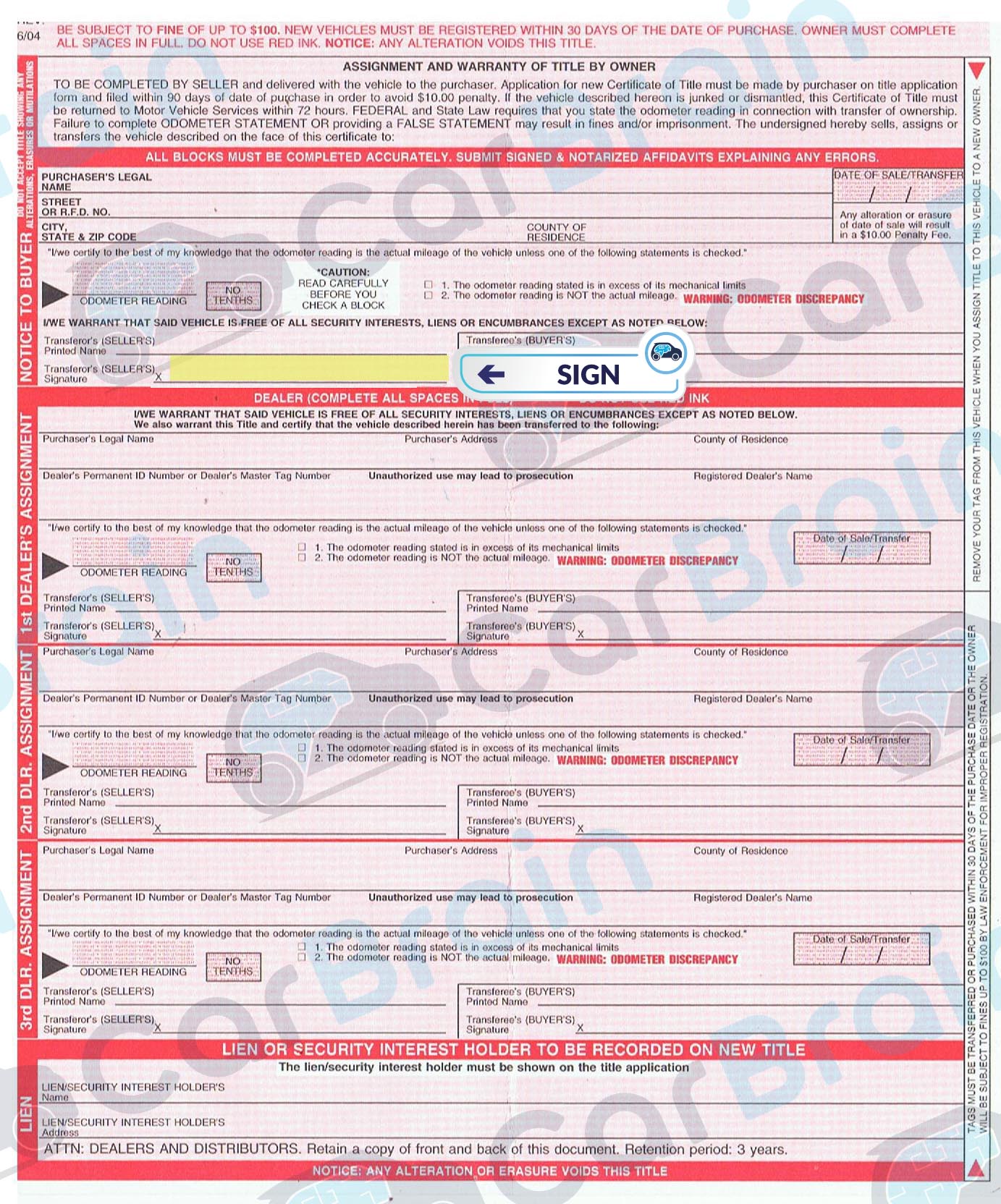Georgia Transfer Of Title

In the state of Georgia, transferring the title of a vehicle is a crucial process that ensures legal ownership is properly documented. Whether you’re buying, selling, or inheriting a vehicle, understanding the steps and requirements for a Georgia transfer of title is essential to avoid legal complications and ensure a smooth transaction. This comprehensive guide will walk you through the process, highlight key considerations, and address common questions to help you navigate the system with confidence.
Why Transferring a Title is Important
Transferring a title is not just a bureaucratic formality—it’s a legal requirement. A properly transferred title: - Establishes Ownership: Ensures the vehicle is legally yours or the new owner’s. - Prevents Fraud: Reduces the risk of fraudulent transactions or disputes. - Complies with State Law: Avoids penalties for failing to update ownership records.
In Georgia, the Department of Revenue (DOR) and County Tag Office oversee title transfers. Timely completion of this process is critical, as Georgia requires titles to be transferred within 30 days of purchasing or acquiring a vehicle.
Steps to Transfer a Vehicle Title in Georgia
1. Gather Required Documents
Before heading to the County Tag Office, ensure you have the following documents: - Title Certificate: The original title signed by the seller. If the title is lost, a replacement can be obtained using Form MV-1. - Bill of Sale: A document detailing the sale, including the purchase price, date, and signatures of both parties. - Form T-2 (Title/Tag Application): Available at the County Tag Office or online. - Valid Identification: Driver’s license or state-issued ID for both buyer and seller. - Proof of Insurance: Georgia requires proof of insurance to transfer a title. - Emissions Inspection Certificate: Required in certain counties for vehicles less than 25 years old.
2. Complete the Title Transfer
- Seller’s Responsibility: The seller must sign the title in the designated area and provide a notarized signature if the title does not have a pre-printed notary section.
- Buyer’s Responsibility: The buyer must complete Form T-2, including the vehicle’s VIN, make, model, and year. Both parties must sign the form.
3. Pay the Required Fees
Georgia charges fees for title transfers, including: - Title Fee: $18 (as of 2023). - Ad Valorem Tax: Based on the vehicle’s value and county of residence. - Tag and Registration Fees: Varies depending on the vehicle type and county.
4. Submit Documents to the County Tag Office
Visit your local County Tag Office with all required documents and fees. The office will process the transfer and issue a new title in the buyer’s name. If the vehicle is financed, the title will be mailed to the lienholder.
Special Cases in Title Transfers
Inheriting a Vehicle
If you inherit a vehicle, you’ll need: - Affidavit of Inheritance (Form MV-17T): For vehicles valued under 5,000. - Probate Court Documents: For vehicles valued over 5,000. - Death Certificate: To prove the previous owner’s passing.
Out-of-State Titles
If the vehicle is from another state, you must: - Obtain a Georgia Title: Submit the out-of-state title, Form T-2, and proof of insurance. - Pass Emissions Testing: Required in certain counties.
Gift Transfers
For vehicles given as gifts, the donor must complete the title and provide a notarized statement declaring the vehicle as a gift. The recipient must still pay the title fee and ad valorem tax.
Common Mistakes to Avoid
- Incomplete Documentation: Missing or incorrectly filled forms can delay the process.
- Late Submission: Failing to transfer the title within 30 days can result in fines.
- Incorrect Signatures: Ensure all signatures are notarized if required.
- Ignoring Emissions Testing: Required in certain counties for vehicles under 25 years old.
Frequently Asked Questions (FAQ)
How long do I have to transfer a title in Georgia?
+You must transfer the title within 30 days of purchasing or acquiring the vehicle to avoid penalties.
What happens if I lose the title before transferring it?
+You can apply for a replacement title using Form MV-1 and pay a fee of $8.
Do I need to pay sales tax when transferring a title?
+No, Georgia replaced sales tax with the ad valorem tax, which is based on the vehicle’s value.
Can I transfer a title online in Georgia?
+No, title transfers must be completed in person at a County Tag Office.
What if the seller doesn’t sign the title?
+You cannot transfer the title without the seller’s signature. Contact the seller or seek legal advice if they refuse to sign.
Key Takeaways
Transferring a vehicle title in Georgia requires careful attention to detail and timely action. By gathering the necessary documents, understanding the fees, and following the correct procedures, you can ensure a seamless transfer of ownership. Always verify specific requirements with your local County Tag Office, as rules may vary by county.
Expert Insight
"Title transfers are more than just paperwork—they’re a critical step in protecting your legal rights as a vehicle owner. Always double-check documents and deadlines to avoid unnecessary complications." – Georgia DOR Representative
By following this guide, you’ll be well-equipped to handle a Georgia transfer of title efficiently and confidently. Whether you’re a first-time buyer or an experienced seller, understanding the process ensures a hassle-free experience.